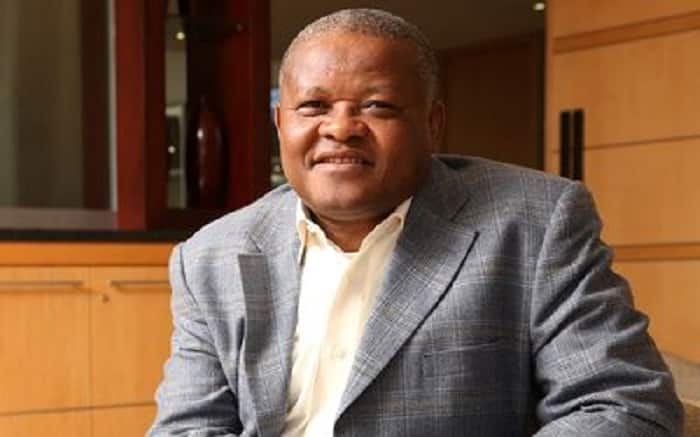Vodacom has appointed businessman Saki Macozoma to the role of chairman of the Vodafone-owned mobile company.
Chairman Jabu Moleketi will retire and step down from its board at its next annual general meeting.
Macozoma’s appointment is effective from 22 July 2020. He was first appointed to Vodacom’s board in July 2017.
He also assumes the role of chairman of the Nomination Committee and will step down from the Audit, Risk & Compliance Committee.
“The board expresses its thanks to Jabu for his leadership and valuable contribution to both the board and Vodacom over the past 11 years and wishes him much success with his future endeavours.”
Vodacom also makes board changes as chairman steps down
Following the appointment of Macozoma as Chairman, David Brown is appointed as a lead independent non-executive director with effect from Wednesday 22 July 2020.
Thomas Reisten has resigned from the board with effect from 31 March 2020.
“The board thanks Thomas for his valuable contribution to the board over the past 15 months.”
Messrs Pierre Klotz and Clive Thomson will join the board as a non-executive director and independent non-executive director respectively with effect from Wednesday 1 April 2020.
On his appointment as a director, Clive will become a member of the Audit, Risk & Compliance Committee.
“The board looks forward to the contribution of Pierre and Clive.”
Who is Saki Macozoma?
Saki Macozoma is one of the most prominent business figures in South Africa. He is executive chairman of Safika Holdings, Tshipi é Ntle and Ntsimbintle Mining, and a director of Volkswagen South Africa and is deputy chairman of Vodacom Group Limited.
In addition to his business interests, Saki makes a substantial contribution to civil society. He has served as chairman of the University Council of the University of the Witwatersrand and the Council for Higher Education and is currently a member of the Board of Governors of Rhodes University. He is the chairman of the Kwazulu–Natal Philharmonic Orchestra and has served as president of Business Leadership South Africa and as a member of the G20 Business Council.
In 2012, for his fight against State oppression during the apartheid era, the University of South African (UNISA), presented Saki with a Calabash award, the university’s highest honour. Saki’s fight against apartheid began in the mid-1990s when he worked as an organiser for the South African Students Movement. When he was 19, he was arrested for leading a student protest and sentenced to five years’ imprisonment as a political prisoner on Robben Island. It was here that he met South Africa’s future president, Nelson Mandela, who mentored him.
Following his release from prison in 1982, Saki played a prominent role in the formation of a number of anti-apartheid organisations, including the United Democratic Front and the Mass Democratic Movement. In 1994 Saki became an African National Congress (ANC) member of Parliament and was elected chairperson of the Parliamentary Portfolio Committee on Communications. In 1995, he was elected to the National Working Committee of the African National Congress.
In April 1996, Saki resigned from parliament to become the first black managing director of Transnet, the state-owned company that runs South Africa’s ports, railways and South African Airways. In 1998, he was appointed to the board of Standard Bank and later became its deputy chairman. He has also served as chairman of the prominent South African financial institutions STANLIB and Liberty Holdings. He is currently deputy chairman of Vodacom.
Saki studied political science, economics and journalism at UNISA and the University of Boston.

